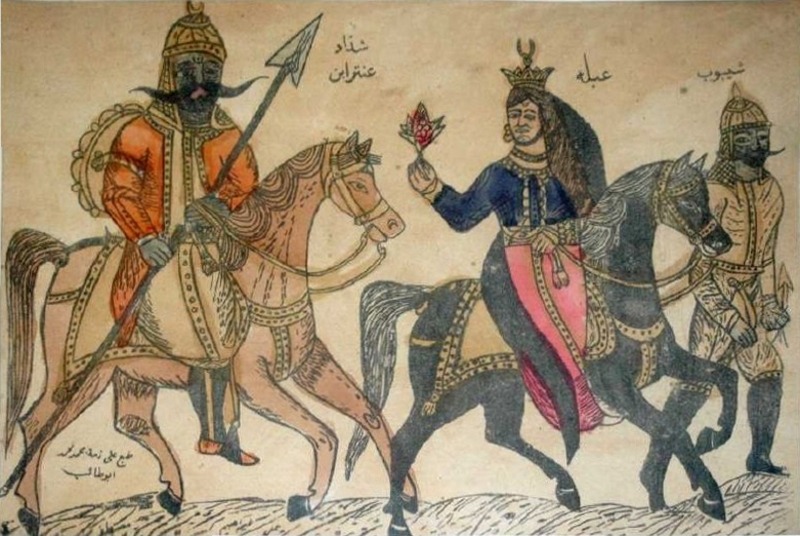Sunday, March 13, 2011
Module no. 7: Arabic Literature
Posted by: Beverly Abelon
Source: http://www.newworldencyclopedia.org/entry/Arabic_literature, www.adbookfair.com
_____________________________________________________
Introduction
Arabic literature (Arabic: الأدب العربي, al-Adab al-‘Arabī) is the writing produced, both prose and poetry, by writers in the Arabic language. The Arabic word used for literature is adab which is derived from a meaning of etiquette, and implies politeness, culture and enrichment.
Arabic literature emerged in the 6th century with only fragments of the written language appearing before then. It was the Qur'an in the 7th century which would have the greatest lasting effect on Arabic culture and its literature. Arabic literature flourished during the Islamic Golden Age, but has remained vibrant to the present day, with poets and prose-writers across the Arab world achieving increasing success.
Arab Poetry
A large proportion of Arabic literature before the 20th century is in the form of poetry, and even prose from this period is either filled with snippets of poetry or is in the form of saj or rhymed prose. The themes of the poetry range from high-flown hymns of praise to bitter personal attacks and from religious and mystical ideas to poems on sex and wine. An important feature of the poetry which would be applied to all of the literature was the idea that it must be pleasing to the ear. The poetry and much of the prose was written with the design that it would be spoken aloud and great care was taken to make all writing as mellifluous as possible. Indeed saj originally meant the cooing of a dove.
Non- Fiction Liteature
Fiction Literature
-In the Arab world, there was a great distinction between al-fusha (quality language) and al-ammiyyah (language of the common people). Not many writers would write works in this al-ammiyyah or common language and it was felt that literature had to be improving, educational and with purpose rather than just entertainment. This did not stop the common role of the hakawati or story-teller who would retell the entertaining parts of more educational works or one of the many Arabic fables or folk-tales, which were often not written down in many cases. Nevertheless, some of the earliest novels, including the first philosophical
novels, were written by Arabic authors.
_______________________________________________________
A Wild Cat
Su'ad As-Sabah
Your love lurks in my veins like a bandit
Commits arson, shatters lanterns
And skulks in the corners of my veins
Like a wild cat with sharp claws
Alert to hunt moths
To pounce on birds
And I lie awake at night waiting for it to come forth
From my blood.
You came with your conquering army, and caused an upheaval
That changed my life
You sequestered all my possessions
Bound me with chains of gold
And put me under house arrest
Within the limits of your eyes
You locked me in the cell of love
And took the keys away with you.
Suad Muhammad al-Sabah (also spelled Souad alSabah or Suʿad al-Sabah) was born in 1942 in Kuwait as a member of the ruling family. She graduated from the Faculty of Economics and Political Sciences at Cairo University in 1973. She obtained a doctorate in economics from Sari Guilford University in the United Kingdom in 1981. She later returned to Kuwait and established the Suad alSabah Publishing and Distribution House. She has published several books of poetry and established a literary prize that carries her name. She also has written hundreds of economic and political essays as well as popular articles in several Arabic local and international newspapers and magazines. Her poetry has been translated into many languages, including English.
Upon the 1990 Iraqi invasion of Kuwait, alSabah campaigned against the war, writing newspaper articles and hosting radio programs, attempting to persuade Arab organizations to adopt firm stands against Iraq's aggression. In 1991 she published an anthology of ironic and bitter poetry on the Gulf War entitled Will You Let Me Love My Country? The poems delve into the spiritual crisis experienced by most Arab intellectuals in the new world order.
Al-Sabah is the director of Kuwait Stock Exchange and a member of the Higher Council for Education, the executive committee of the World Muslim Women Organization for South East Asia, and the board of trustees and the executive committee of the Arab Intellect Forum. She is also a founding member of the Arab Cultural Establishment, the executive committee of the Arab Human Rights Organization, and the Arab Council for Childhood and Development. Her poetry has captured the attention of popular artists as well as university researchers in many countries. Her literary publications include Wamdatt Bakira (Early blinks) and Lahathat min Umri (Moments of my life, 1961). Her scientific works in English include Development Planning in an Oil Economy and the Role of the Woman (1983) and Kuwait: Anatomy of a Crisis Economy (1984).
Assessment:
1. What is Epic Literature in Arabic Literature?
2. Give one example of Murder Mystery
3. What is Arabic Poetry?


0 comments:
Post a Comment